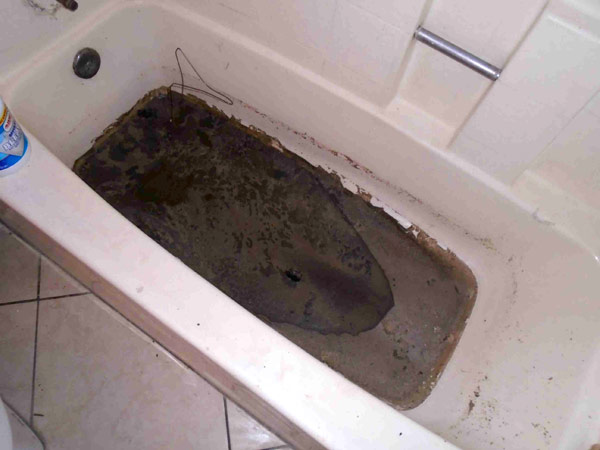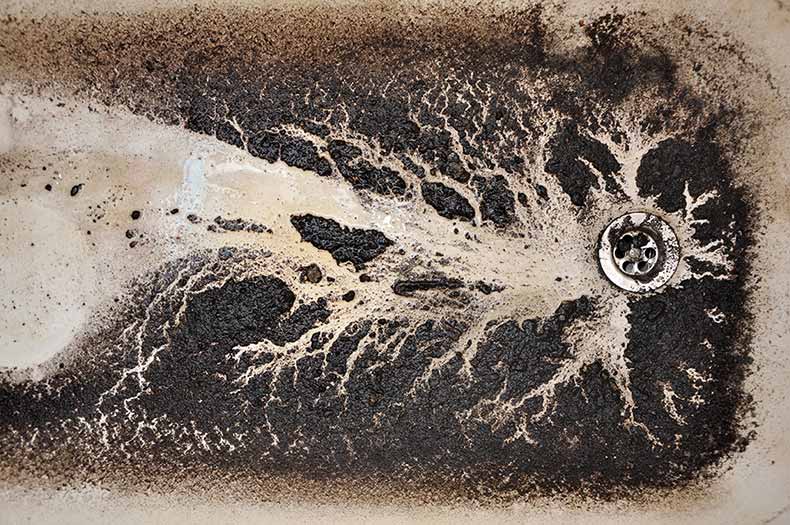Unveiling the Mystery of Waste in the Bathtub
Unveiling the Mystery of Waste in the Bathtub
Blog Article
Just how do you feel when it comes to What To Do If Sewage Starts Backing Up Into the Shower?

Sewage backup in the bath tub can be an upsetting and unhygienic problem for any type of house owner. Not just is it bothersome, but it additionally positions significant health risks and suggests underlying issues with the plumbing system. Comprehending why sewer is turning up with the bath tub is important for taking proper action to resolve the problem properly.
Intro to the Problem
Typical Factors for Sewage Backup
Obstructions in the Drain Line
Among one of the most usual sources of sewer back-up is a clog in the sewage system line. This can take place as a result of the build-up of debris, grease, or foreign items in the pipes, protecting against proper circulation and creating sewage to back up right into your bath tub.
Tree Origin Invasion
Tree origins looking for dampness and nutrients can penetrate drain lines with small fractures or joints. Over time, these roots can expand and increase, creating substantial damage to the pipelines and bring about sewage back-up issues.
Understanding the Issue
When sewer draws back up into the tub, it's a clear indication of a trouble with the drainage system. The wastewater that needs to be streaming far from your home is instead finding its back right into your living space, which can result in considerable damage and health hazards.
Prospective Reasons
A number of elements can contribute to sewage backup in the bath tub. From obstructions in the sewer line to issues with the plumbing infrastructure, recognizing the origin is crucial for finding a solution.
Aging Framework
Older homes might have obsoleted plumbing systems that are extra at risk to deterioration, fractures, and wear and tear. As pipelines age, they end up being a lot more prone to leakages and blockages, increasing the probability of sewage back-up events.
Heavy Rainfall or Flooding
Throughout periods of heavy rainfall or flooding, the sewer system may come to be overloaded with excess water, causing back-ups and overflows. This can cause sewage supporting into bath tubs and other components inside the home.
Signs of Sewage Back-up
Foul Odors
Unpleasant smells emanating from drains or components, especially in the bathroom, might show sewer backup issues. These odors are usually strong and persistent, indicating a trouble that needs instant interest.
Slow Draining Fixtures
Bath tubs, sinks, and commodes that drain slowly or not in all could be experiencing sewer backup. If several fixtures are affected all at once, it's most likely that the problem stems from an usual factor, such as the main sewer line.
Gurgling Sounds
Strange gurgling or gurgling noises originating from drains when water is running in other places in your home are indicative of air entraped in the plumbing system. This air buildup can result from sewage backup and should be investigated immediately.
Health And Wellness Risks Associated with Sewer Back-up
Contamination of Water System
Sewage backup can pollute the water in your house, presenting a serious health and wellness threat to you and your family. Exposure to polluted water can bring about stomach issues, skin infections, and other ailments.
Mold and mildew Development
Wetness from sewage backup can develop perfect conditions for mold and mildew growth in your house. Mold and mildew spores can intensify respiratory issues and trigger allergies in sensitive individuals, making prompt clean-up essential.
Spread of Illness
Sewer consists of unsafe germs, infections, and bloodsuckers that can create a variety of conditions, consisting of hepatitis, cholera, and gastroenteritis. Coming into contact with sewage or infected surfaces places you in jeopardy of infection.
Cleaning Up After Sewer Backup
Disinfection Procedures
Thoroughly disinfect and disinfect influenced locations after sewer back-up to remove dangerous bacteria and avoid mold and mildew growth. Usage appropriate cleaning items and protective gear to make sure secure and effective clean-up.
Remediation of Impacted Locations
Fix any kind of damages to floor covering, walls, or fixtures caused by sewage backup. Depending on the extent of the damage, you might require to replace carpets, drywall, or various other products to recover your home to its pre-loss problem.
Immediate Actions to Take
Switching Off Water Supply
In the event of sewer back-up, it's necessary to turn off the supply of water to avoid further contamination and damage. Find the major water shutoff valve in your house and closed it off up until the problem can be fixed.
Speaking To an Expert Plumber
Managing sewer backup is not a do it yourself job. Call a qualified plumber with experience in taking care of sewage-related problems to evaluate the scenario and execute needed repairs or clean-ups.
Preventing Contact with Contaminated Water
Till the sewer back-up is dealt with, stay clear of contact with polluted water to prevent the spread of germs and virus. Put on protective equipment if you should remain in the damaged location and wash your hands extensively later.
Preventive Measures
Normal Upkeep of Sewage System Lines
Schedule regular evaluations and upkeep of your sewage system lines to identify and address prospective issues prior to they rise into significant problems. This can include clearing out particles, examining for tree root breach, and fixing any damaged pipelines.
Mounting Backwater Shutoffs
Take into consideration mounting bayou valves in your plumbing system to prevent sewer from receding into your home during durations of heavy rainfall or flooding. These valves automatically close when water starts backing up, safeguarding your building from contamination.
Proper Disposal of House Waste
Prevent purging anything other than bathroom tissue and human waste down the commode to prevent blockages and clogs in the sewer line. Dispose of oil, oil, and various other household chemicals appropriately to reduce the danger of plumbing issues.
Why Is Water Backing Up in My Bathtub When I Flush My Toilet?
What to do about a sewer line clog
First, don’t bother with plunging. No amount of plunging will dislodge the clog in a sewer line. The clog is too far away. Plungers are for clogs in the toilet itself, not the sewer line. Plus, the most likely causes of a sewer clog are:
Tree roots Flushed toys or feminine products Grease buildup Those items don’t move easily. And in the case of tree roots, the roots need to be cut out of the pipe and the pipe will need to be repaired.
You’ll need a closet auger. A closet auger is a type of plumber’s snake with a protective cover to keep from scratching the delicate porcelain toilet. If the clog is further down, you may need to remove the toilet or use one of your cleanouts to get to the clog.
We also recommend doing a video inspection of the drain to ensure that the cause of the clog has been completely removed. Otherwise, you could have the same problem again in a few days or weeks.
https://mspplumbingheatingair.com/blog/why-is-water-backing-up-in-my-bathtub-when-i-flush-my-toilet

Do you enjoy reading about What to Do if Sewage Starts Coming Up Through Your Bathtub? Try to leave a remark down the page. We will be pleased to know your reactions about this blog. In hopes that you visit us again in the future. Enjoyed our write-up? Please quickly share it. Help others check it out. We appreciate your readership.
Click Here
Report this page